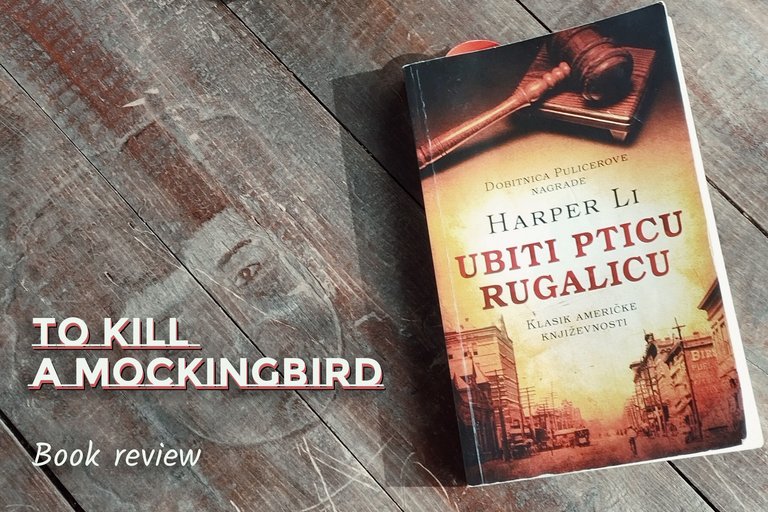In the realm of literary classics, few books hold a cult status at the level of Harper Lee's "To Kill a Mockingbird." Its narrative, revolving around racial injustice in the American South in 1920s, has impacted the readers worldwide for decades. Finally getting to this classic, my feelings about it are mixed, containing both indifference and excitement.

Even though it was on my reading list for a while, it was recommended to me again by a couple of friends who recently went through it. And they absolutely loved it, so I had to disappoint them a bit with my take on it. I don't have much bad to say about the book, but nor do I have a wealth of praise. It didn't leave a particularly strong impression on me, and I believe the timing of when I read it may have played a role in that assessment. Had I read it 15-20 years ago, it might have easily become one of my favorites. However, viewing it now through the lens of high expectations for such a popular classic, it fell somewhat short. While my impressions are still settling, here are a few observations.
The book is told from the perspective of Scout, free spirited 8-year old girl in the American south. The girl is a portrayal of the author, Harper Li, some of the stories are truthful and others adapted to fit her idea behind the book. We read about her childhood adventures with her brother Jem and neighbor kid Dill, we explore her relationship with her dad who is an attorney and at the second part of the book, we follow a trial where Atticus defends a black man on court who is accused of raping a white woman. Having in mind the time and place of these events, it was an unpresented situation - black people used to be heavily segregated and have little to no rights.
“You never really understand a person until you consider things from his point of view... Until you climb inside of his skin and walk around in it.”
The characters of Scout and Atticus stood out to me, albeit Atticus more in a parental sense than in a professional one. Scout, for her spiritedness, childlike innocence, eccentricity, curiosity, and outspokenness; and Atticus, for his stoicism, restraint, calmness in every situation, and his approach of allowing his children to be free and learn from their experiences. These are the two positive aspects of the book that stood out to me, with the third being the trial, which was engaging and held my attention.
However, the concept of the novel as two separate stories, with the first being the children's adventures and the second being the trial, didn't quite resonate with me. In fact, the first part wasn't particularly captivating, lacking in action, and feeling somewhat stretched.
It's not entirely clear to me what age group the book is intended for. I wouldn't be surprised if it was pushed to become a classic and included in (American) school literature. Regarding the theme of racial discrimination, it seems to attempt to justify the actions of white people by suggesting that not everyone was intolerant. However, Atticus himself harbored racist views despite advocating for equal rights (from what I understood, this becomes obvious in the second book by the author - the one which was written first, but published close to the author's death, and it's set 20 years in the future).
Overall, I think the book is somewhat beautiful and innovative considering that it was one of the first to tackle such a difficult subject. However, it didn't bring about any significant changes, draw strong conclusions, or offer deep insights. It failed to depict the situation from the perspective of the marginalized (I understand that Scout may not have had much understanding of the other side).
Atticus is portrayed as a hero (perhaps idealized by his impressionable daughter), but he had flaws and could have done more during the trial. However, given the political climate at the time, everything was doomed to fail from the start. Nevertheless, I don't see him as a revolutionary.
“I wanted you to see what real courage is, instead of getting the idea that courage is a man with a gun in his hand. It's when you know you're licked before you begin, but you begin anyway and see it through no matter what.”
It's amusing that I had already envisioned the book in much the same way I experienced it before I knew anything about it beyond a few brief descriptions. I had put off reading it, convinced I wouldn't like it, and considering that, it exceeded my expectations. There is something about the American authors in general that doesn't quite captivate me, but all in all I'm glad I read it and I would rate it higher if it wasn't given such high praises all around.
3.75/5 stars.
Via Tenor
Credit: atheistrepublic
Earn Crypto for your Memes @ HiveMe.me!